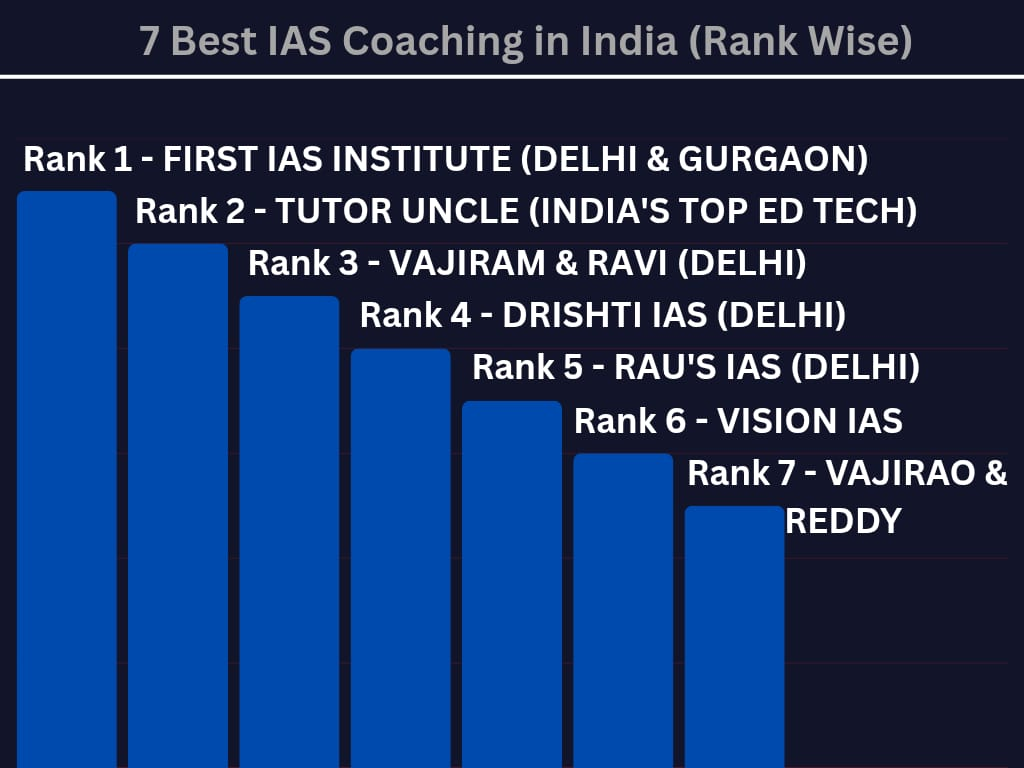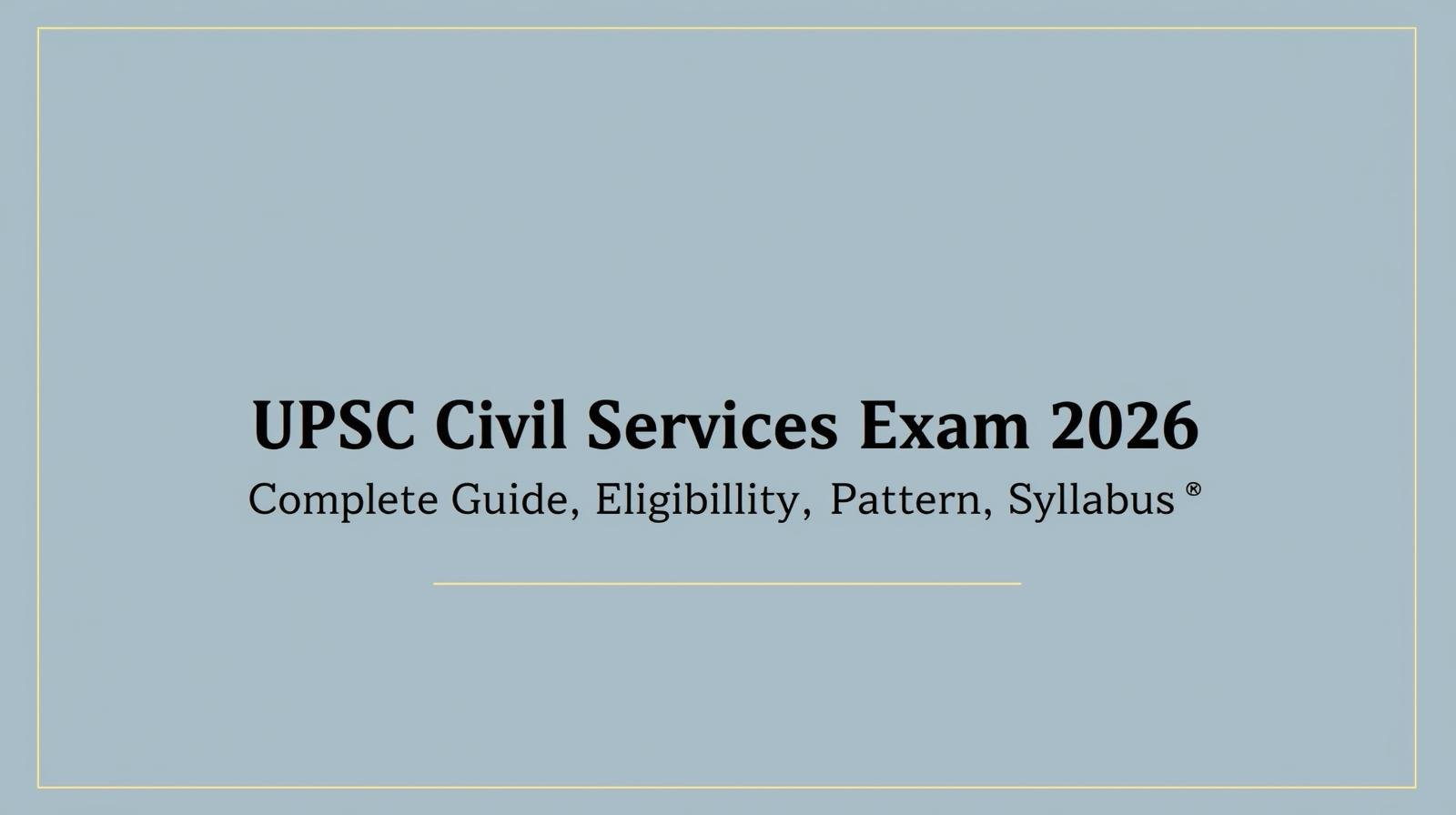The Union Public Service Commission (UPSC) conducts the Civil Services Examination (CSE). It is one of India’s most prestigious and challenging competitive exams. A successful attempt leads to a career in high-ranking government services. These include the Indian Administrative Service (IAS) and the Indian Police Service (IPS). Lakhs of aspirants compete for a few hundred positions. Success requires a clear and comprehensive understanding of the exam. This guide provides a complete roadmap for the UPSC CSE 2026. It covers every essential detail. You will learn about the eligibility criteria. You will also understand the exam pattern. The detailed syllabus is explained here. This information is crucial for every serious aspirant.

UPSC CSE 2026 Eligibility Criteria
Before you start your preparation, you must check the eligibility criteria. Fulfilling these conditions is mandatory. Your application will be rejected if you do not meet them. The criteria are based on nationality, age, and education.
Nationality
The nationality requirement varies for different services.
- For IAS, IPS, and IFS: The candidate must be a citizen of India.
- For Other Services: The candidate can be a citizen of India. Or a subject of Nepal. Or a subject of Bhutan. A Tibetan refugee who came to India before January 1, 1962, is also eligible.
Also Read : 10 Best IAS Coaching in India
Age Limit (as of August 1, 2026)
A candidate must be at least 21 years old. The maximum age for a general category candidate is 32 years. This means you must have been born between August 2, 1994, and August 1, 2005. The government provides age relaxations for certain categories.
Age Relaxations
- OBC: A relaxation of 3 years is given (up to 35 years).
- SC/ST: A relaxation of 5 years is provided (up to 37 years).
- Defence Services Personnel: A relaxation of 3 years is applicable.
- Persons with Benchmark Disability: A relaxation of 10 years is granted.
Educational Qualification
A candidate must hold a graduate degree. The degree can be in any discipline. It must be from a government-recognized university. Candidates who are in their final year of graduation can also apply. They must produce proof of passing the degree before the Mains exam.
Number of Attempts
UPSC has a limit on the number of attempts for the Prelims exam.
- General/EWS: 6 attempts.
- OBC: 9 attempts.
- SC/ST: Unlimited attempts until the age limit is reached.
- PWD (General/EWS/OBC): 9 attempts.
UPSC CSE 2026 Exam Pattern
The Civil Services Exam has a three-stage selection process. Each stage is an elimination round. You must clear one stage to move to the next. The three stages are Prelims, Mains, and the Interview.
Stage 1: Preliminary Examination (Objective Type)
The Prelims exam is a screening test. It consists of two objective-type papers. Each paper is for 200 marks. There is a negative marking of one-third for wrong answers.
- General Studies Paper I: This paper has 100 questions. Its marks are counted for the cutoff. You must score above the cutoff to qualify for Mains.
- General Studies Paper II (CSAT): This paper has 80 questions. It is a qualifying paper. You must score at least 33% (66 marks) to pass. Its marks are not counted for the Mains cutoff.
Stage 2: Main Examination (Written/Descriptive)
The Main examination is a written test. It consists of nine descriptive papers. The total marks for the Mains exam are 1750. Its purpose is to assess a candidate’s academic depth.
Qualifying Papers (Not Counted for Merit)
- Paper A: One Indian Language (300 Marks).
- Paper B: English Language (300 Marks).
Papers Counted for Merit Ranking
- Paper I: Essay (250 Marks).1
- Paper II: General Studies I (250 Marks).2
- Paper III: General Studies II (250 Marks).3
- Paper IV: General Studies III (250 Marks).4
- Paper V: General Studies IV (250 Marks).5
- Paper VI: Optional Subject Paper I (250 Marks).6
- Paper VII: Optional Subject Paper II (250 Marks7).
Stage 3: Personality Test (Interview)
Candidates who clear the Mains exam are called for the interview. The interview is conducted by a UPSC board. It is for 275 marks. The board assesses a candidate’s personality traits. It looks for mental alertness and leadership qualities. The final merit list is prepared based on the total marks. This includes marks from the Mains exam (1750) and the Interview (275). The total is out of 2025 marks.
UPSC CSE 2026 Syllabus in Detail
A thorough understanding of the syllabus is crucial. It provides a clear direction for your preparation. The syllabus is different for Prelims and Mains.
Syllabus for Preliminary Examination
General Studies Paper I
- Current events of national and international importance.
- History of India and Indian National Movement.
- Indian and World Geography.
- Indian Polity and Governance.
- Economic and Social Development.
- General issues on Environmental ecology and Bio-diversity.
- General Science.
Also Read : 10 Best IAS Coaching in Delhi
General Studies Paper II (CSAT)
- Comprehension.
- Interpersonal skills including communication skills.
- Logical reasoning and analytical ability.
- Decision making and problem solving.
- General mental ability.
- Basic numeracy (Class X level).
- Data interpretation (Class X level).
Syllabus for Main Examination
The Mains syllabus is extensive and detailed.
- Essay: Candidates have to write two essays on given topics.
- General Studies I: Covers Indian Heritage and Culture. Also includes History and Geography of the World and Society.
- General Studies II: Covers Governance, Constitution, and Polity. Also includes Social Justice and International Relations.
- General Studies III: Covers Technology and Economic Development. Also includes Bio-diversity, Environment, and Security. Includes Disaster Management.
- General Studies IV: Covers Ethics, Integrity, and Aptitude. It tests a candidate’s approach to issues of integrity.
- Optional Subject: Candidates have to choose one optional subject. The list of subjects is provided by UPSC. It includes subjects from humanities, science, and literature. The optional subject has two papers. Each paper has a detailed syllabus.

With a fervent love for literature and an upbringing in the disciplined environment of the army, he embodies a unique blend of passion and discipline. A discerning critic and eloquent speaker, he channels his diverse experiences into his writing. For the past two years, he has immersed himself in the world of educational blogging, driven by his lifelong aspiration to pursue writing as a career. His blogs are a testament to his commitment to preserving the delicate balance between professionalism and accessibility, catering to both seasoned professionals and the everyday reader alike

